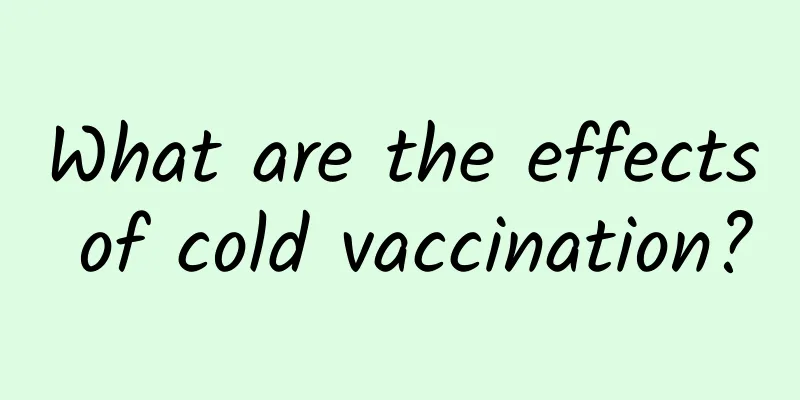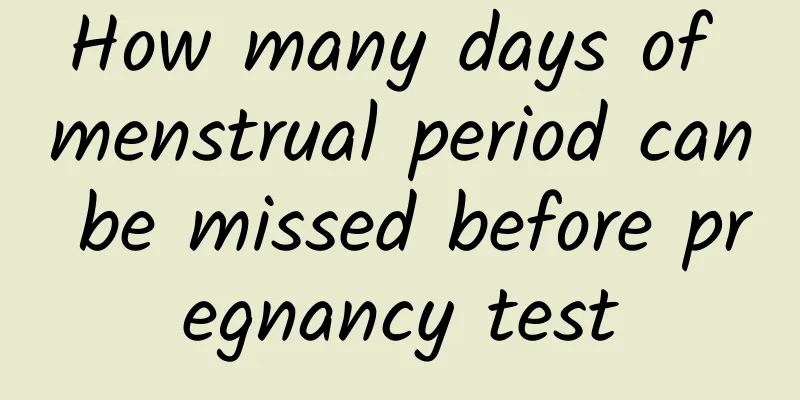What are the effects of cold vaccination?

|
Since the body functions of newborn babies are not fully developed, they are very likely to get sick if not cared for properly. Therefore, in addition to taking good care of the newborn babies, we often rely on vaccinations to help improve the baby's immunity and avoid viral infection. The time for newborn baby vaccination should be arranged according to the physical condition. If there is jaundice, severe eczema, cold, etc., it is not suitable for vaccination. 1. Neonatal jaundice period Some babies have high jaundice after birth, and their faces are still yellow after they are one month old. If the jaundice is not completely cured, don’t rush to vaccinate your baby. 2. Premature babies Most premature babies will be thinner than full-term babies of the same period after one month, and these babies are more likely to have low immunity, and will catch a cold or fever at the slightest disturbance. Many vaccines often cause fever, pain, and even short-term allergic dermatitis symptoms. Therefore, it is recommended that mothers ask the nurse when vaccinating their babies, what is the latest time for vaccination, and wait until the baby grows up and his physical fitness improves before vaccinating. 3. Severe eczema There are many children in my hometown who are covered too tightly by the elderly, saying that they are afraid that the children will catch a cold. In summer, the adults turn on the air conditioner and blow the fan, but the babies are wrapped in thin blankets. As a result, red spots appear all over their bodies, and the babies are so itchy that they scratch them. It turns out that they have severe eczema. If your baby has such a situation, it is best not to rush to vaccinate him. To be on the safe side, you must wait until the baby's eczema is alleviated before going. 4. The baby has just had a fever and a cold. Most parents know that vaccination is not allowed during illness, but diseases are hidden. If parents cannot clearly determine whether their baby is completely well, it is best to wait 1-2 weeks after the cold is recovered before getting the vaccine. After babies receive the flu vaccine, some may experience redness, swelling, pain, and nodules at the injection site. These are normal reactions and usually disappear within 1-2 days. No treatment is required. There are also very few people who will experience low fever, but their body temperature generally does not exceed 38°C and only physical cooling is required. If the body temperature is too high, it may be coincidental with other diseases, because it takes at least 15 days after vaccination to produce effective protective antibodies, during this period you can still be infected with influenza or the common cold. If the baby has a common cold, then just follow the usual treatment methods for colds. Try to let the child sleep longer, reduce outdoor activities appropriately, and don't let the baby get tired. Let your baby drink more water. Sufficient water can make the nasal secretions thinner and easier to clean. Let your baby eat more fruits and juices rich in vitamin C. If it doesn't work, you can go to the hospital and take medicine under the doctor's guidance. |
<<: What is a cold if you have a runny nose and sore throat?
>>: Can fumigating vinegar prevent colds?
Recommend
The harm of taking folic acid in late pregnancy
I believe that many women who are pregnant or pre...
What tea should I drink for bad breath?
If you often suffer from indigestion, it will cau...
The most terrible ten days, 10 kinds of chronic diseases are very likely to break out
August 16, 2016 is about to enter the "autum...
The most effective way to treat bean poisoning
Green beans are undoubtedly the most nutritious of...
The fastest way to remove dark circles, do this for three days and you can easily remove dark circles
Everyone wants to have a beautiful face, but many...
How to respond to knee pain
When your knees hurt, it is best to rest in bed f...
How to treat the sequelae of viral encephalitis
Viral encephalitis brings a lot of trouble to pat...
Huanglian Wendan Decoction for the treatment of insomnia
Nowadays, people are faced with various pressures...
Summer Health Tips
The weather in summer is relatively hot, which ma...
What are the symptoms of severe iron deficiency?
I believe that many people use iron pans for cook...
The efficacy and function of stir-fried Chinese jujube seeds
Traditional Chinese medicine is a familiar medici...
What causes redness and swelling of the upper eyelid?
If your upper eyelids become red and swollen, you...
How to check trace elements? Is it necessary to check trace elements?
It is very necessary to conduct trace element exa...
How long does it take to cure damp-heat with Chinese medicine?
Damp-heat is a condition that is more likely to o...
Will there be a weak positive before menstruation?
Pregnancy test sticks are very convenient now. Wh...









